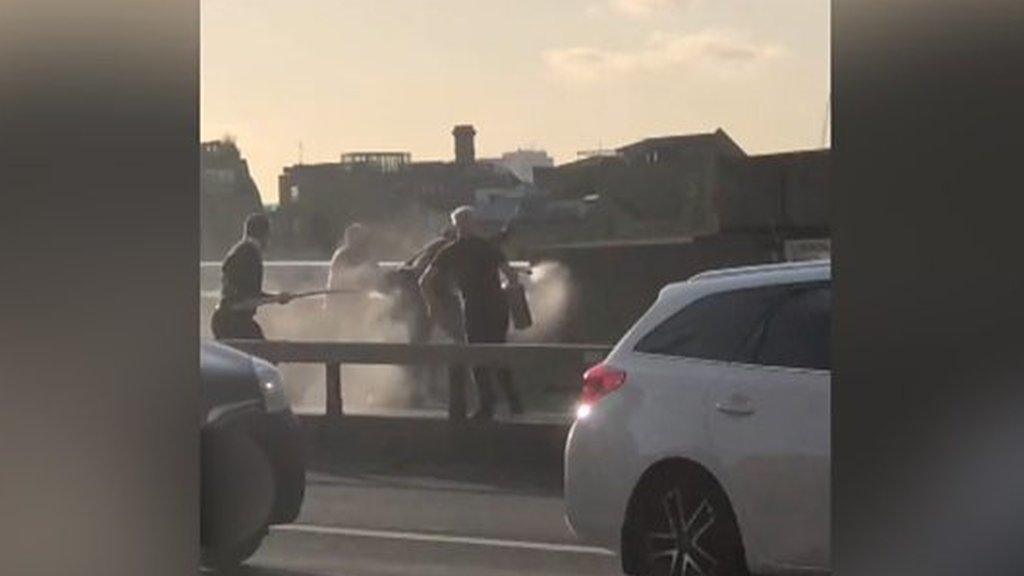London Bridge survivor: 'I saw things I will never unsee'
- Published
Bryonn Bain was giving a workshop at Fishmongers' Hall when the attack began
An American academic has given a graphic account of the moment the London Bridge stabbing attack began, saying it "felt like a warzone".
Bryonn Bain told the BBC that victim Jack Merritt had been the first person to confront Usman Khan when he launched his knife assault during a prisoner rehabilitation conference on Friday.
"I saw people die, I saw things that I will never be able to unsee," he said.
Vigils have taken place for Mr Merritt, 25, and second victim Saskia Jones, 23.
Two women and a man were also injured in the attack before Khan was shot dead by armed officers on London Bridge - the two women are still in hospital in a stable condition.
Prof Bain said former offenders attending the University of Cambridge-linked conference "stepped up and intervened" to tackle Khan, and people at Fishmongers' Hall owed their lives to the actions of those who had previously spent time in jail.
He said two men from his performance poetry workshop immediately ran towards shouts from elsewhere in Fishmongers' Hall in the City of London as the attack began, and as shouts grew louder he also went to assist.
"That's when I ran down and saw the scene unfolding there," he said. "I was able to see the attacker."
He added: "It felt like a warzone... it felt like total chaos."
The chief executive of Fishmongers Hall, Commodore Toby Williamson describes how his staff fought back
Prof Bain said course co-ordinator Mr Merritt was "the first line of defence".
"I want to honour him," Prof Bain said of Mr Merritt. "I want to honour his father's wishes which have been explicit to not have his life be used for political purposes to ramp up draconian policies, because that's not what he was about."
Mr Merritt's father criticised newspaper coverage of Prime Minister Boris Johnson's pledge to review the early release of convicted terrorists.
Writing in the Guardian, external, David Merritt says his son "would be seething at his death, and his life, being used to perpetuate an agenda of hate that he gave his everything fighting against".
The article calls for a justice system that focuses on rehabilitation, rather than revenge, and criticises indeterminate sentences, saying his son worked for "a world where we do not lock up and throw away the key".
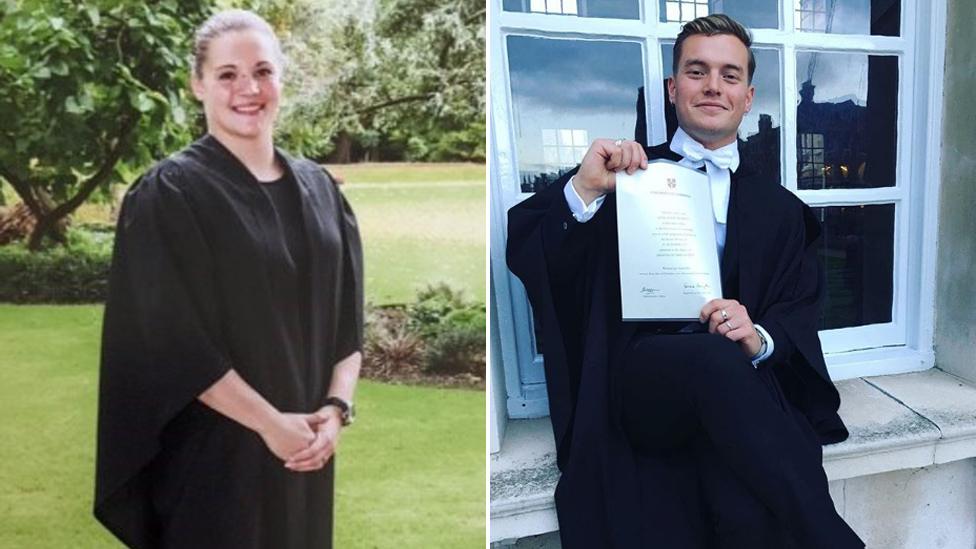
Jack Merritt was a co-ordinator of the Learning Together programme and Saskia Jones a volunteer
Prof Bain added: "I want to make sure that as much as possible that we uphold the heroes of the day, were formerly incarcerated people, some of the folks who are often easiest to dehumanise.
"They stepped up and many of the folks in that space would not be here today if it weren't for these guys who did time in prison and literally saved lives."
In other developments on Monday:
Prime Minister Boris Johnson defended his response to the attack after Mr Merritt's father criticised newspaper coverage of Mr Johnson's pledge to review the early release of convicted terrorists
Mr Johnson and Labour leader Jeremy Corbyn attended a vigil at the Guildhall near London Bridge to honour those caught up in the attack
London Mayor Sadiq Khan said the best way to defeat the hatred shown in the attack was to focus on the values of hope, unity and love
BBC News learned the attacker, Usman Khan, 28, had been under investigation by the security service MI5 since his release from prison last year, but given one of the lowest priorities. He had been convicted of a terrorism offence in 2012
As part of his release conditions, Khan was obliged to take part in the government's desistance and disengagement programme - which aims to rehabilitate those involved in terrorism
Vigils for the victims of the attack were also held in Cambridge and Anglia Ruskin University, which Ms Jones had previously attended.
Mr Merritt and Ms Jones both studied for masters degrees at the University of Cambridge's institute of criminology and had been taking part in an event for its Learning Together programme - which focuses on education within the criminal justice system - when they were killed.
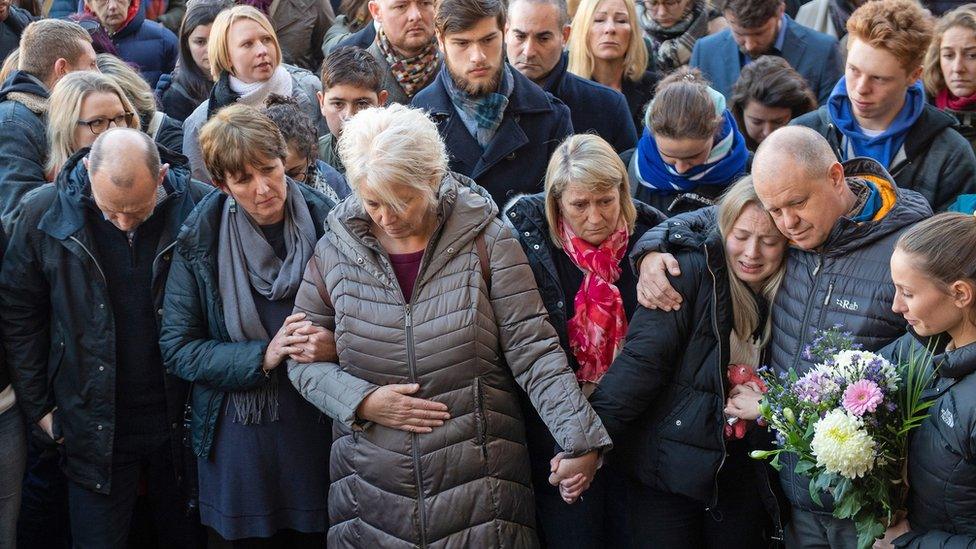
The family of Jack Merritt take part in a vigil at the Guildhall in Cambridge
Mr Merritt, from Cottenham, Cambridgeshire, was a co-ordinator of the Learning Together programme and Ms Jones, from Stratford-upon-Avon, Warwickshire, a volunteer
The victims' families paid tribute to their loved ones at the weekend.
Ms Jones's family said their daughter had a "great passion" for supporting victims of criminal justice.
In a statement, Mr Merritt's family described him as a "talented boy" who "died doing what he loved".
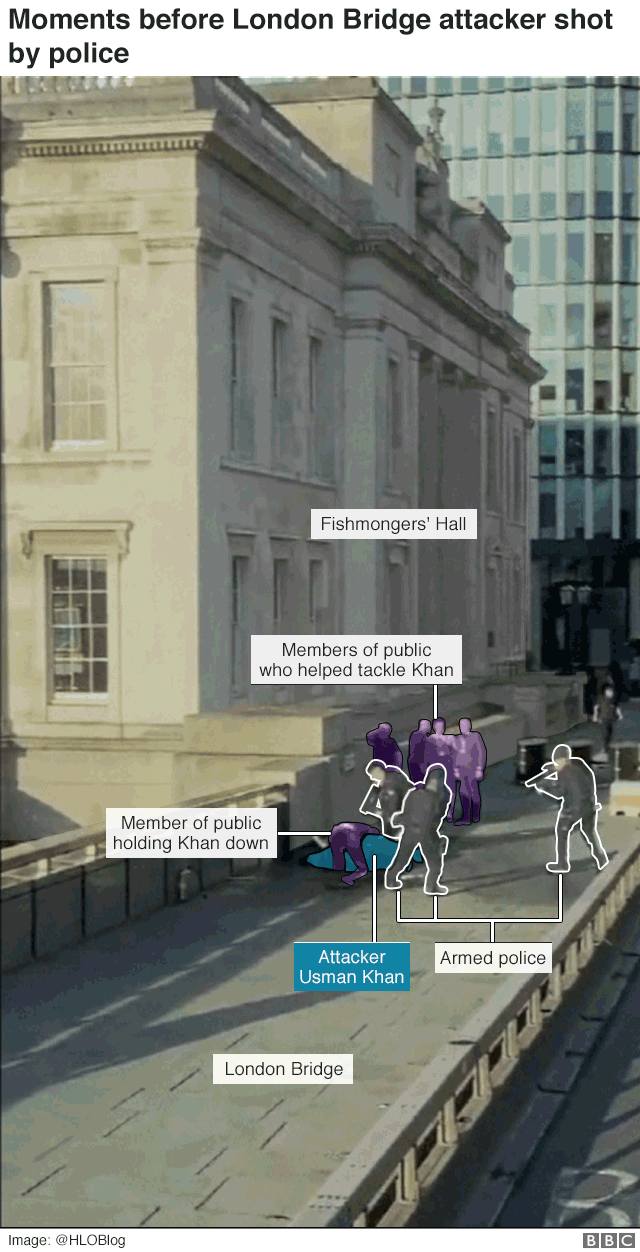

Toby Williamson, chief executive of Fishmongers' Hall, praised the bravery of his staff who intervened to stop the attacker, hailing their actions as "extraordinary things done by ordinary people".
Mr Williamson told how Polish chef Lukasz suffered five wounds to his left-hand side as he fended off the knifeman with a narwhal tusk during "about a minute of one-on-one straight combat" - allowing others time to escape danger.
A group of hall staff, ex-offenders, prison and probation staff are believed to have drawn Khan out on to London Bridge where he was subsequently shot dead by armed police.
The Metropolitan Police said in an update on Monday night that detectives were continuing extensive inquiries but had so far found nothing to suggest other people were involved in the attack.
'Minimal risk'
Khan, who admitted preparing terrorist acts in 2012, was released from prison in December 2018 after serving half of his sentence.
The BBC understands Khan was formally under investigation by MI5 as he left jail but placed in the second-to-bottom category of investigations as his initial risk to the public was thought to be minimal.
This was consistent with the grading given to most other people convicted of terrorism offences as they go back into the community under a release licence.
A low level of prioritisation is assigned to offenders such as Khan because their release comes with a strict set of licence conditions.
These conditions theoretically provide suitable monitoring and oversight, such as alerts if they contact other suspects or travel outside an approved area.
Khan, the BBC has learned, was on the highest-level of such community monitoring. The overall package, in theory, relieves pressure on MI5 so the security service can focus on more immediate threats.
Friday was the first time that Khan, who wore a GPS tag, had been permitted to travel to London since he left prison. The BBC has been told that - earlier in the year - Khan was refused permission to travel to Stoke-on-Trent, which is where he grew up, in order to attend a social event.
The prime minister said on Sunday that 74 people jailed for terror offences and released early would have their licence conditions reviewed..
Police said two terror-related arrests following Friday's incident, in Staffordshire and north London, were not directly connected to the London Bridge attack.
It came after the UK's terrorism threat level was downgraded on 4 November from "severe" to "substantial", meaning that attacks were thought to be "likely" rather than "highly likely".
- Published2 December 2019
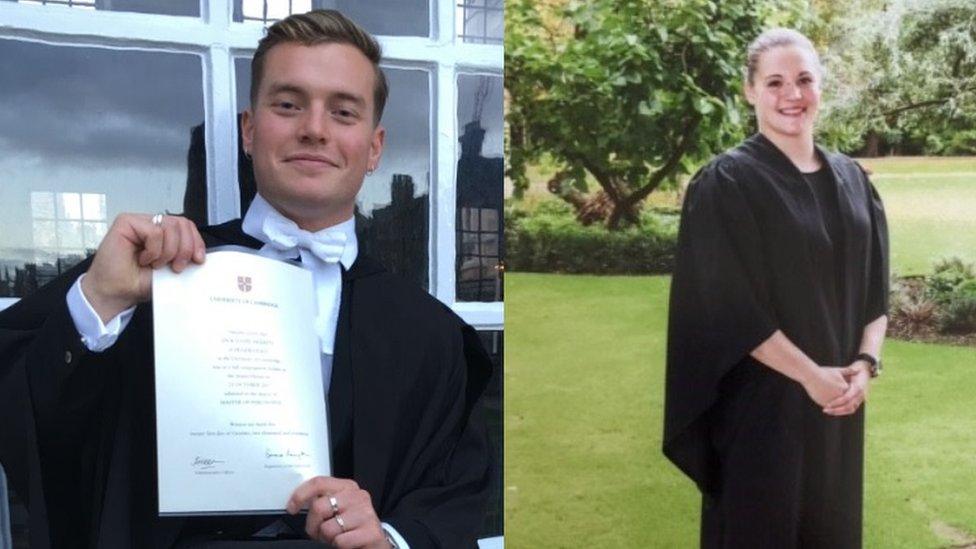
- Published2 December 2019
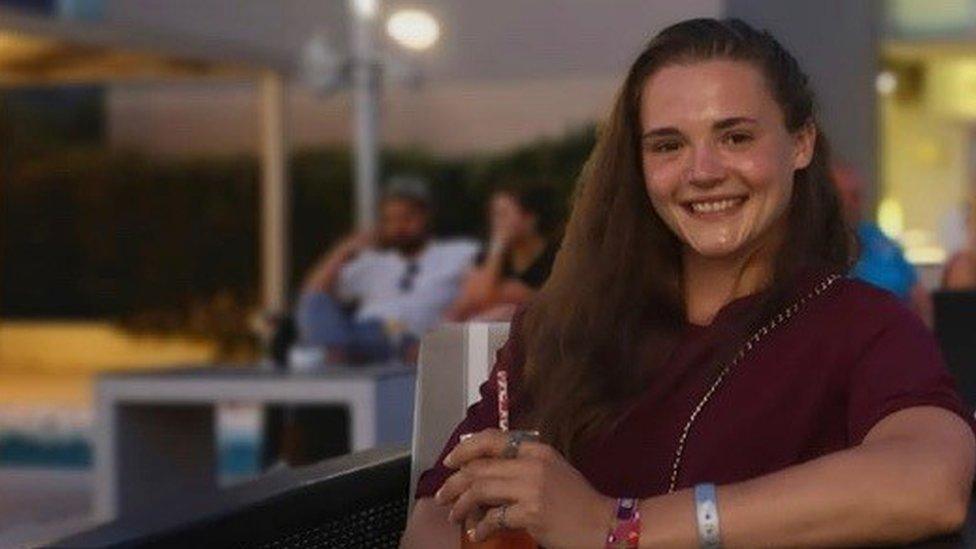
- Published1 December 2019
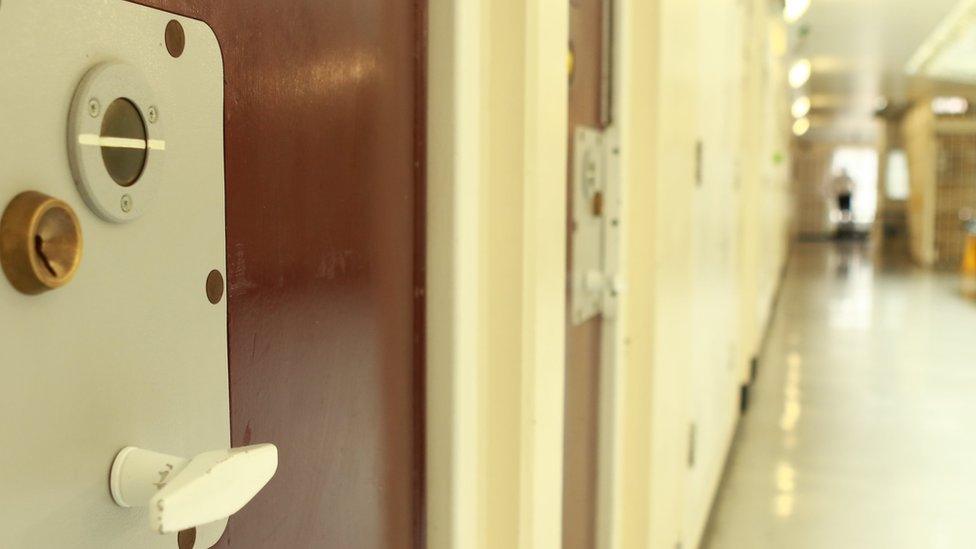
- Published3 December 2019
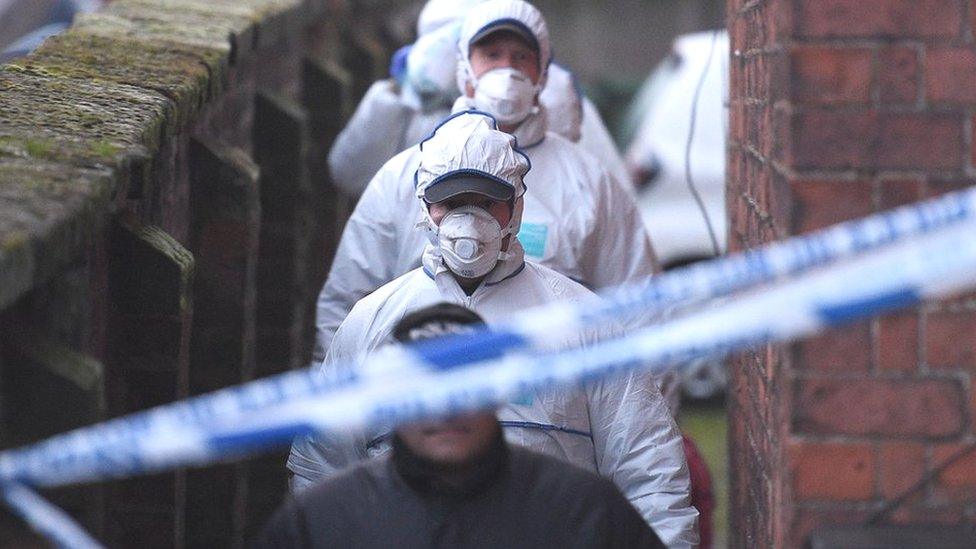
- Published1 December 2019
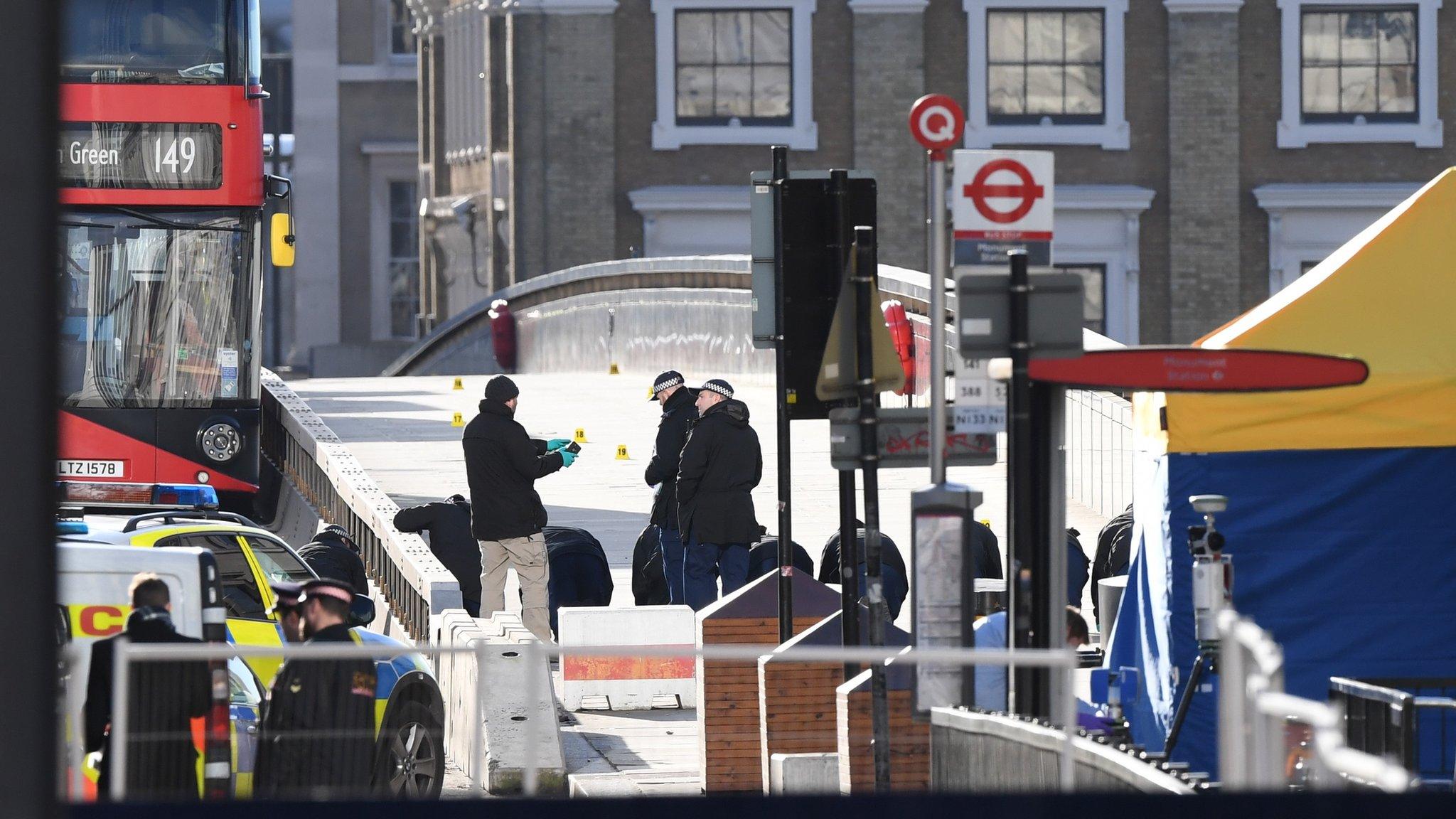
- Published1 December 2019
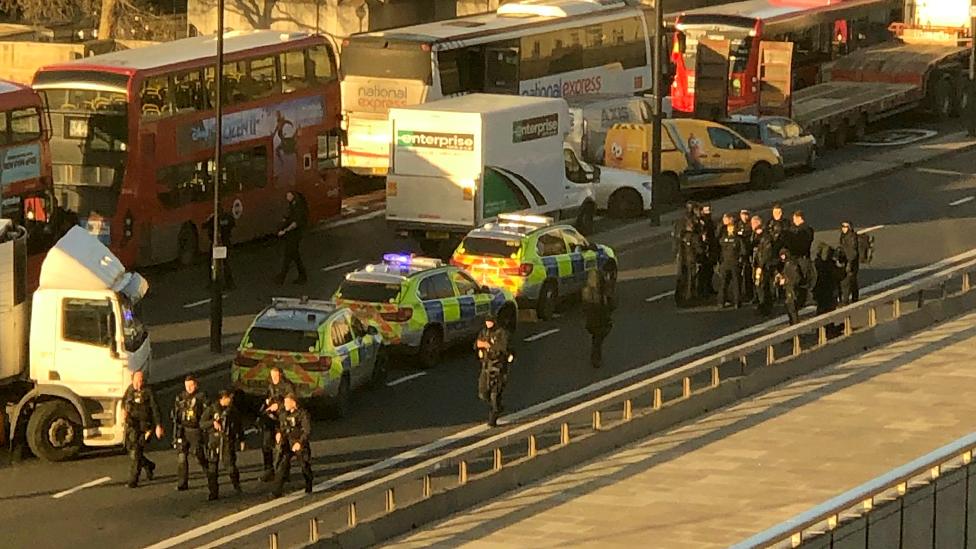
- Published1 December 2019
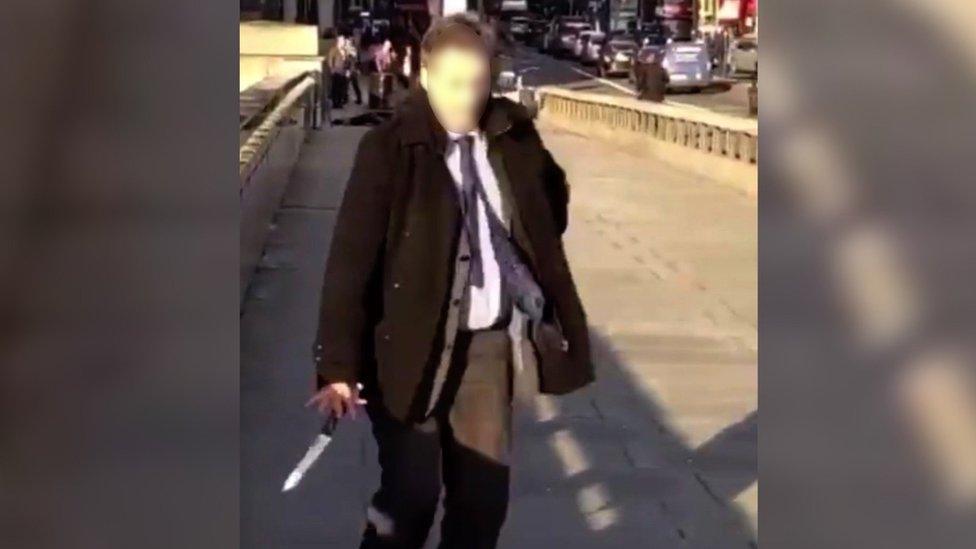
- Published1 December 2019
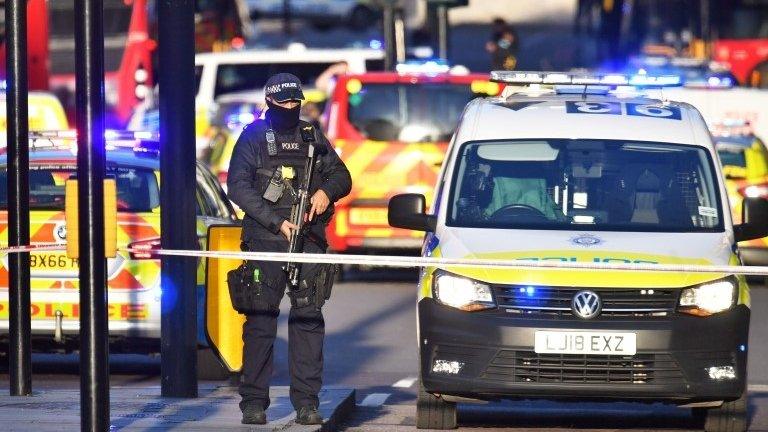
- Published1 December 2019
